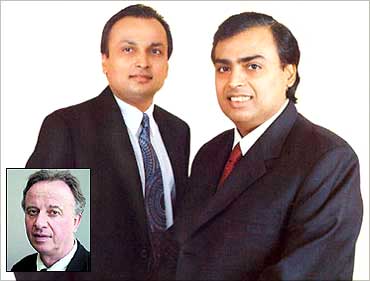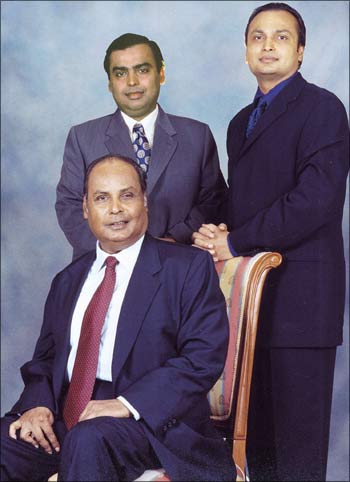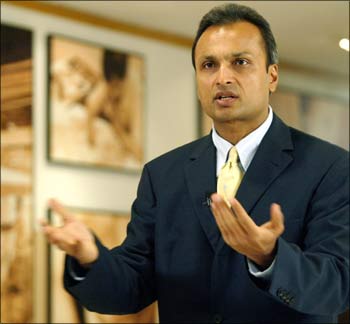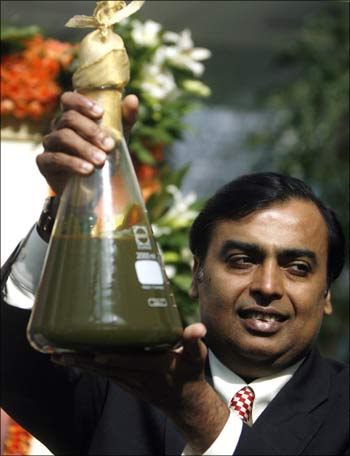 | « Back to article | Print this article |
'Split in Reliance has benefited India'
The split in the Reliance empire caused by differences between the two scions -- Mukesh and Anil Ambani -- five years ago has been good for the country as it has unlocked a lot of value, the author of a newly-released book on the family said.
"Overall, its been better for India. The split has been good for the share-market, it has unlocked a lot of value and helped entrepreneurship," journalist Hamish McDonald said while promoting his new book Ambani & Sons in New Delhi.
The book is McDonald's second on the Ambani family, whose rise to the top of India Inc has been meteoric.
Click NEXT to read further. . .
'Split in Reliance has benefited India'
His first book, Polyester Prince, an unauthorised biography of patriarch Dhirubhai which dwells on all the means used by him in his rapid rise, was not sold in India due to myriad reasons.
The first book was written before the split and McDonald feels it was the vertical division of businesses between the warring brothers in 2005 which prompted him to write Ambani & Sons.
Post-the split, younger brother Anil went to the backward areas and Hindi heartland while elder sibling Mukesh went out and bought assets abroad, McDonald said.
Click NEXT to read further. . .
'Split in Reliance has benefited India'
"It was good for Reliance (Industries) as well. . .it could focus on its key businesses and the split also took it back to its strengths," McDonald said.
In a lighter vein, McDonald added, "It's better for two brothers to watch the outside world rather than watching each other."
McDonald, however, said he did not expect the business to split after the death of Dhirubhai in 2002, at least in the 'current generation' (Mukesh and Anil).
The siblings' mother Kokilaben had brokered a thaw between the brothers, leading to the division of the diversified group.
Click NEXT to read further. .
'Split in Reliance has benefited India'
Under the settlement, Mukesh got Reliance Industries Limited and Indian Petrochemicals Corporation Limited and his younger sibling Anil got Reliance Capital, Reliance Energy and Reliance Infocom.
However, relations continued to be tumultuous even after the split with Anil dragging his elder brother to court over gas pricing.
Now, however, five years after they split, the two brothers seem to have patched-up their differences though they still operate their different empires.
In his remarks, McDonald also spoke about Dhirubhai's expertise in managing the press, prices of his stocks and favourable policy formulation, saying over '60 per cent of his time' was occupied in such activities.
Click NEXT to read further. . .
'Split in Reliance has benefited India'
To a specific query on lobbying in the corridors of power and if it should get legalised in India, he said, "Lobbying is a hot topic of debate across. . .you hear it in the USA, Europe and the UK. May be it should."
Asked about the current situation, McDonald said the reporting by the press is still 'uneven' and reporters continue being under pressure.
He sounded optimistic that his new book would do well and continue to be on the stands in India.
"I cannot see men in black outside (the hall)," he said, matter-of-factly.




